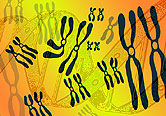But outside expert questions whether counseling may be more important after a positive test result
THURSDAY, Oct. 1, 2015 (HealthDay News) — Only about one-third of women receive genetic counseling before they undergo testing for BRCA mutations, and patients who receive genetic counseling beforehand display better knowledge of the process and possible results, according to a study published online Oct. 1 in JAMA Oncology.
In collaboration with Aetna, researchers surveyed 3,874 women whose doctors ordered BRCA testing between December 2011 and December 2012. Slightly less than half of the women who underwent BRCA testing had a family history of breast or ovarian cancer, while slightly more than half had no personal history of breast or ovarian cancer, according to the researchers.
Of those women, about 37 percent reported receiving genetic counseling from a genetics professional prior to testing, the study authors said. The most common reason reported by women for not receiving this service was the lack of a recommendation from their doctor. The women who did receive genetic counseling by a trained genetics professional displayed greater knowledge of BRCA and expressed greater understanding and satisfaction.
Only one out of every 20 women in this study came back positive for a BRCA mutation, which raises the question of whether the other 19 women received any benefit at all from the counseling they got beforehand, editorial author Steven Narod, M.D., director of the familial breast cancer research unit at the Women’s College Research Institute in Toronto, told HealthDay. “The doctors are perfectly capable of ordering the test, providing the preliminary information the patient needs in order to decide whether to have the test, and interpreting a negative test,” Narod said. “The genetic counselor should focus on interpreting a positive test.”
Copyright © 2015 HealthDay. All rights reserved.








